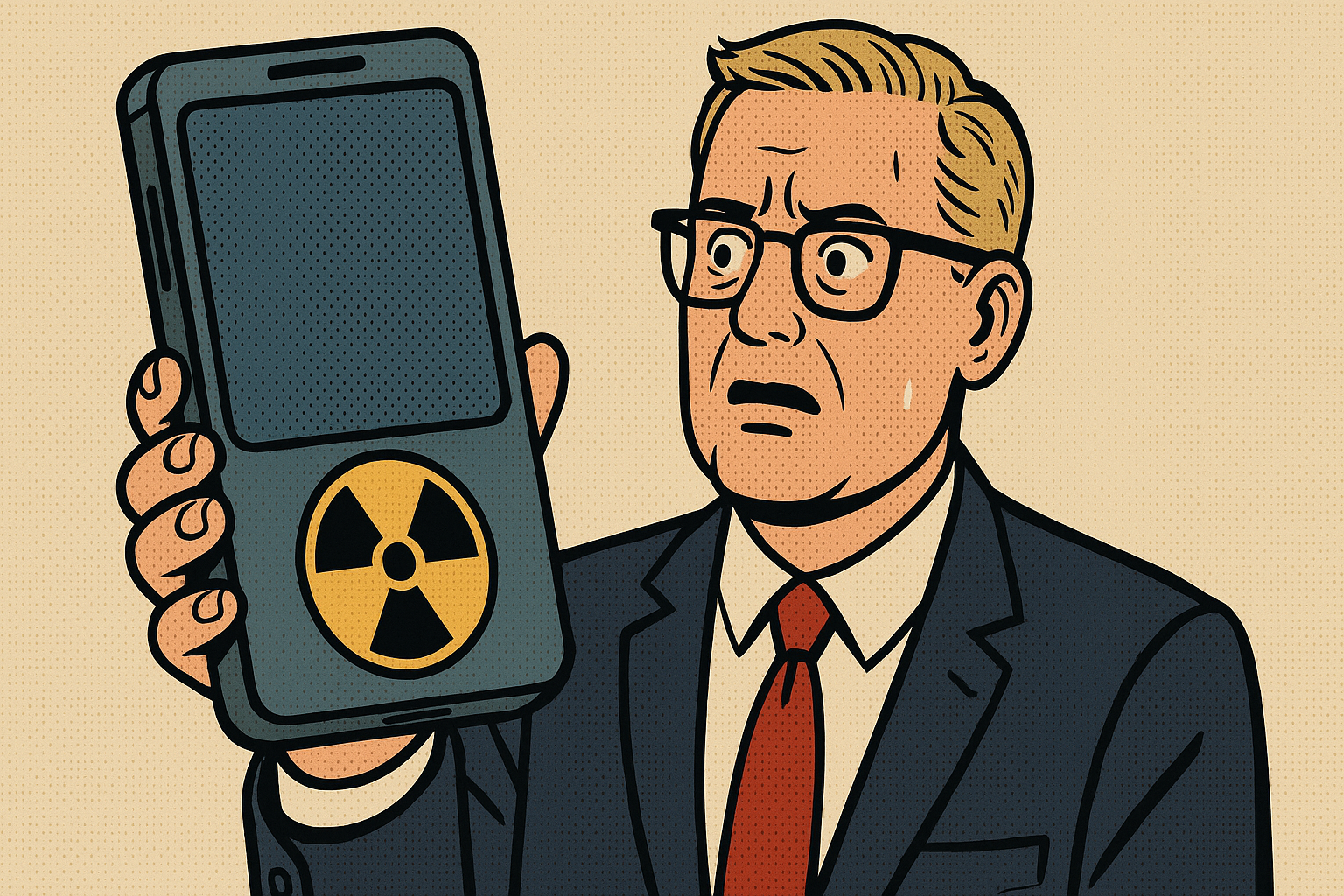London/New York – In a bold yet baffling new venture, a British-American pact has been reached to usher in an era of nuclear-powered smartphones, promising to revolutionize communication while introducing an unprecedented level of public perplexity. The agreement was signed amidst great fanfare by representatives of both countries, who appeared suitably enthusiastic if slightly out of their depth.
The ambitious project, dubbed “CellFission,” aims to leverage the latest advances in miniature nuclear reactors to offer users constant connectivity without the inconvenience of charging. Dr. Reginald Hubbub, a leading physicist at the Institute of Technological Lunacy, claimed during the press conference, “We are standing on the brink of an era where your smartphone becomes not just a communication tool, but a constant companion in your pocket that also happens to possess the power of a small nuclear submarine.”
Initial reports suggest that the battery life of these nuclear smartphones will surpass any known device by an estimated 11.7 millennia, provided users adhere to specific guidelines such as refraining from frequent selfies, avoiding radiation zones, and under no circumstances, should one attempt to microwave the phone—a surprisingly common habit, according to a study by the Society of Missed Communication and Abstract Statistics.
Despite the technological leap forward, the average citizen appears mystified as to how this newfound nuclear capability would manifest in daily life. Harold Crumplebottom, a regular attendee of smartphone release events and part-time amateur tech enthusiast, expressed his concerns: “It’s exciting, sure, but I can’t help but worry about accidentally sharing my lunch plans and an atomic implosion with the same text message. Do I need to start wearing lead-lined mittens? It’s all so terribly confusing.”
Privacy advocates have also raised alarms over the potential for double-speak and unintended surveillance, as nuclear signals allegedly allow government agencies the rare opportunity to tune in on not just phone conversations, but the user’s innermost thoughts—the latter a concern swiftly denied by the Ministry of Intentional Transparency and Carefully-Phrased Reassurances.
Amid the rising confusion, a strong marketing campaign has been launched, urging users to embrace the change, extolling the motto, “Nuclear Isn’t Futile—It’s Just Spin.” In a candid interview, campaign manager Victoria Blunderworth stated, “There’s some resistance, naturally, but we’re confident most users will be won over by our slogan ‘Phone Today, Power Tomorrow, Side Effects Informally Audited.’ Caution should definitely be exercised.”
Ultimately, as both British and American consumers adjust to this groundbreaking—and potentially ground-breaking—technology, it remains to be seen whether the nuclear-powered smartphone will become the device of choice for the discerning, albeit slightly bewildered, Technophile. The underlying suggestion is that, despite potential perils, users should ‘remain cool, stay connected, and glow responsibly.’

Leave a Reply